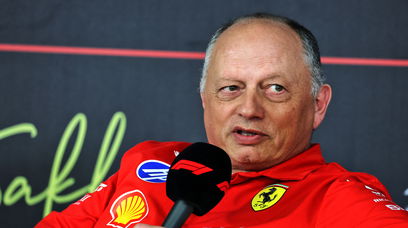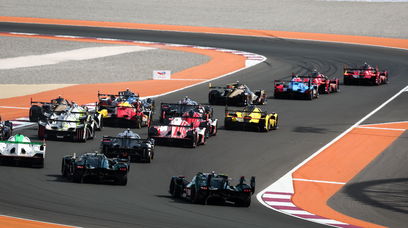While FIA President Mohammed Ben Sulayem's video statement, which outlined initial reforms to be taken by the governing body after the controversial finish to last year's Formula 1 finale in Abu Dhabi, has gone some way towards defusing the lingering situation - and partially appeased the more partisan media, coming as it did on the eve of Mercedes F1's 2022 reveal - his words gave rise to more questions than answers. While the reforms are not only welcome but well overdue, they do make no reference to the crux of the matter, namely that the stewards' panel effectively found in favour of then-Race Director Michael Masi's decisions – thus (twice) totally exonerating the Australian of any blame. If he was blameless, why is he being removed from the role; if not, why is he being retained by the FIA? Then, whilst there are no doubts that the Safety Car procedures require not only a 'reassessment' - as the Emirati termed it - given they can be grossly unfair depending on where on the circuit a driver finds themself at point of deployment, why no mention of the red flag rules, which can be equally, or more, unjust, by not only facilitating a 'free' tyre stop, but permit accident damage to be repaired without penalty during the pause?
Masi out, Freitas and Wittich in
Next question: had the FIA stewards - who, after all, wear FIA shirts - erred in their post-race decisions? If so, will there be any sanctions and will there be reforms to the judicial process? This is crucial, particularly given the chairman of the stewards for the event in question sits on the FIA World Motorsport Council. However, if the stewards are able to prove beyond doubt that they acted within the spirit and wording of the regulations, then it follows that various provisions of the rulebook itself are not fit for purpose. Again: why is Masi being removed from the role if he merely followed the rules as outlined; if the rules do indeed require a full revamp and not a mere reassessment of Safety Car procedures, where is the timeline? While the appointments of long-serving WEC Race Director Eduardo Freitas and Niels Wittich as (rotating) Race Directors is good news, they equally point to a dearth of strength in depth at F1 Race Director level. While the basic functions are the same, the nuances (and regulations) differ vastly between series, and one wonders how long before either feels confident enough to take snap decisions in the pinnacle of motorsport.
Could two Race Directors cause more confusion?
Has F1 not learned from the untimely death of the legendary Charlie Whiting, whose calm manner and in-depth understanding of the sport avoided many a crisis? Although Masi and two other candidates had been appointed as understudies to Whiting, they were far from fully prepared when he passed away. Who, in the three years Masi was in the role, was identified as his deputy or even successor? Equally, if consistency of Race Director decisions - conspicuously lacking last year on numerous occasions - is the aim of these reforms, why rotate Race Directors, who could, after all, read and react to fundamentally similar situations totally differently as is a human trait? Ditto the appointment of Whiting's former deputy Herbie Blash (74) as Permanent Senior Advisor to the Race Directors. Allow me to state that I have nothing but admiration for Herbie and his abilities, but if the FIA and F1 truly wish to be seen to be progressing, why go forward by going backward by appointing a Bernie Ecclestone loyalist? Equally, are there no other qualified persons within the FIA to take on this role? If not, this is another indictment of the FIA's lack of succession planning… although, to be fair, that is hardly of Ben Sulayem's making, given he has been in the hot seat for just months.
F1's Virtual Race Control plans are nothing new
While a big song and dance is made about a Virtual Race Control Room, the concept is hardly new, having been tried and tested by the FIA, as Chris Bentley, the FIA Head of IT, explained after systems were developed to connect remote stewards to Race Control under Covid. Indeed, the 2021 Le Mans 24 Hours was officiated on that basis, with a senior steward doing duty from the USA. The system was also deployed for the F3 round in Sochi when the chairman of the stewards was unable to travel due to a passport glitch, and also in Qatar to review the decision handed down in Brazil in the wake of the off-track clash between Max Verstappen and Lewis Hamilton. "We've swapped the whole emphasis of the network connectivity from one where we were sending data remotely to one of people coming in remotely," Bentley said in an exclusive interview. "That is something that will continue, because we've been able to do quite a lot of things this way. "There's a concept that the FIA have been talking about for a little while, which is the virtual garage, where you have resources available to the outside that can benefit people at the track." Given that such systems were up and running (and proven under arduous 24-hour conditions) in June 2021, why was F1 Race Control not connected by December? If it was, where is the big deal?
Where does F1 go from here?
In his presentation, Ben Sulayem made the point that "the unlapping procedures behind the Safety Car will be reassessed by the F1 Sporting Advisory Committee and presented to the next F1 Commission prior to the start of the [2022] season". The foregoing makes clear that a root-and-branch review of all F1's regulations and procedures is required well beyond the safety procedures, and in the interests of transparent governance the (hopefully) in-depth analysis of the entire sport, and not only the events in Abu Dhabi, should be made public.
Most read






